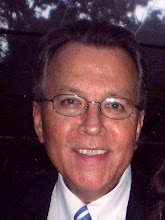I recently attended a seminar in Miami about the upcoming elections in Brazil, set for early October, 2010. Foregone conclusion? Dilma, (as she is known), the current chief of staff of President Lula, will win the election for president of this remarkable country. All five of the renowned speakers, from academia, former government officials, investment banking and various vantage points agreed, the candidate of the PT (Partido do Trabalhador) party is going to win. The questions, then, begin to crop up:
1) Will she have the charisma and political savvy to handle her own party (PT) and the coalition party (PMDB) with the same effectivness as Lula has over the past eight years?
2) Will the country, and the president-elect-to-be, know how to handle the vast financial resources (cash flow) that the country generates today with commodity, agriculture, manufacturing and other productive sectors of the country PLUS the enormous revenues that will result from the production of new deep-water oil and natural gas finds in the oceans off southern Brazil in the coming years?
3) Will the corruption that has touched nearly all parts of the Lula administration be tamped down, or will it wash over the new administration in damaging ways as yet unforeseen?
4) Can the nation step up to the vast infrastructure development needs that the FIFA World Cup (2014) and the Olympic Games (2016) will require to host the world? Will this investment be well-managed and the results beneficial to the long-terms needs of the country, or will something less satisfactory result?
5) Does Brazil's "South/South" foreign policy, intended to exclude, in some ways, the northern hemisphere's long-time power elites (the USA included), and specifically focused on the powers developing in the southern hemisphere (India, South Africa, and others) portend something that is disconnected from "Western" values? Does the USA even understand the personality of Brazil, as a sovereign nation, as it plays the Iran card, the Venezuela card, and numerous others that seem to flaunt a different point of view and policy than that espoused by the USA?
6) Will the growing middle class which seems happily engaged in new levels and means of consumption be satisfied with a "status quo" leadership and "status quo" policies in Brazil, or will it force changes in trade policy, tax policy, foreign affairs policy, energy policy and others that will create a rich, long-term future for the nation? Will the population in general continue to expect more of the same from the country's leadership, or demand something better and more strategic for the country?
These and many other questions confront all who do business with Brazil, those who deal with political and policy issues on the world stage (where Brazil is shining brighter and brighter), and all those who consume in one way or another the many, many products that Brazil now exports to the rest of the world. Believe it or not, Brazil is a powerhouse, and the rest of the world needs to understand now more than ever that it's not just a future star, but a super nova, creating more heat, energy and impact in the world than ever before.
Comments? Comentários? Por gentileza, escreva. Please, write your thoughts, and thanks for reading.
(c) Daniel A. Cabrera, TopExec.org, 2010, All rights reserved.
Friday, September 24, 2010
Subscribe to:
Posts (Atom)




